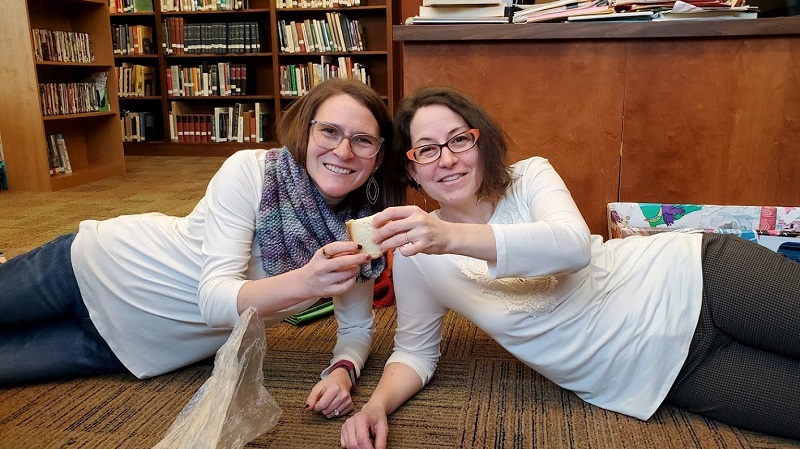In some homes on Shabbat, families have a tradition of touching the challah as it’s blessed. In larger groups, the tradition is that each person touches someone who is touching the challah, so that everyone present is connected to the things that nourish and sustain us, like food and family.

Every week at Foundation School when we celebrate Shabbat, we raise up our hands, stretch our bodies, and ask the person next to us if it would be ok if we rest our hands on each other’s shoulders and create a circle of blessing from one person to the next. We then move into blessing the challah in this same embrace, as we pass the connection to the challah from one person to the next. This is one of my favorite Friday morning moments because of its intimacy and human-to-human connection. And in the process, we’re also teaching our children consent as well as the power that comes from an entire community reaching out and connecting with one another. It’s a beautiful final moment to hold onto before we disperse for the weekend.
So much of who we are as a people is tied to this feeling of intimate connection, and it stems from the Torah. This week we read Parshat Terumah. Terumah recounts for us the building of the Tabernacle, and we receive instructions for the beautification of the space. Each vessel, covering, light fixture, and costume piece is listed so that the space is constructed to God’s exact specifications. Each piece is named individually, and each piece has a precise purpose. Assembled together, this will become the dwelling place of God.
As part of the discussion of the cherubs that would adorn the ark, we read, “They shall have their wings spread out above, shielding the cover with their wings. They shall confront each other, the faces of the cherubim being turned toward the cover.” In other words, the cherubs all must be connected to the others, not facing God alone. The idea is that in order to fully connect as a community, we must be as connected to fellow human beings as we are to God.
It’s easy to get caught up in the routines and problems of daily life, closed off with our “wings” covering our faces so no one can connect in. Parshat Terumah reminds us that building a a sacred space together isn’t just about connecting with God; it’s about the face-to-face connections we have with each other.
– Rabbi Eve Posen



